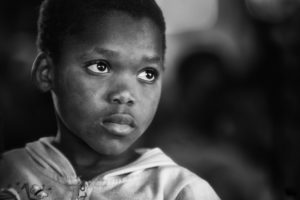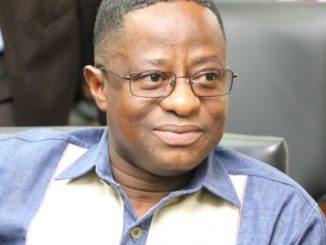 Accra, Ghana – In 1957, Andrew Foster, an African American missionary, arrived in Ghana to establish a school for the deaf.
Accra, Ghana – In 1957, Andrew Foster, an African American missionary, arrived in Ghana to establish a school for the deaf.
He had been deaf since the age of 11 and knew the struggles of communicating as a child.
In Ghana, he convinced regular schools to let him use their classrooms after hours to teach deaf children. Word spread and it wasn’t long until there were 300 children wishing to attend the lessons on a waiting list.
But more than 60 years later, while education has improved, Ghana’s deaf remain isolated from society.
Deaf Ghanaians are often unable to communicate with their neighbours and, worse, fathers and mothers are unable to understand their deaf children’s hopes and fears.
Led by headteacher Isaac Atah, the State School for the Deaf (JHS), located in a peaceful neighbourhood of eastern Accra, provides education and housing for 270 students.
Atah lauded the government’s support, but said parents have unreasonable expectations.
“Parents and relatives expect the school to freely provide all services and goods, even when the children are at home during holiday breaks,” he told Al Jazeera. “They want us to take full responsibility for their children, both financially and in their education, while instead, they should proactively try to learn sign language and guide their children into the working society.”
The school organises parent-teacher meetings, but they have little effect.
“Unfortunately, the level of attendance is low as parents are not willing to put effort into it,” claimed Atah.
‘I feel lonely’
“At home, I generally feel lonely,” saysObed Dekyi, a student. “There is no one able to communicate with me. Besides, there are no other deaf children to reach out to for a conversation or a game.”
The 23-year-old started at the school at a late age.
“My father and mother don’t understand sign language, which constantly results in miscommunication. When I try to express myself, they frequently call me ‘stubborn’ and punish me for my behaviour. As a result, sharing my adventures with them is rather difficult.”
Like his fellow students, Dekyi prefers to be around other deaf children.
The historical stigma of deaf people that are seen as dumb is rapidly decreasing, but due to the communication gap, they are still treated as dumb.
ISAAC ATAH, HEADTEACHER OF THE STATE SCHOOL FOR THE DEAF
Atah said that as part of their isolation from the rest of society, the students tend to look out for other deaf people during holiday breaks.
The Ghana National Association of the Deaf is concerned by a lack of schools for older students and limited availability of technical resources for the deaf.
None of the 14 schools for the deaf in Ghana provides listening devices, such as hearing aids, or speech therapy. This makes people more reliant on sign language, which is rarely used outside of specialist schools.
“In order to treat people with hearing disabilities as equal citizens, we need to make access to justice free from all obstacles, whether these are laws, practices or infrastructure,” said Josephine Nkrumah, chair of the government’s National Commission for Civic Education.
She fiercely advocates for the protection of deaf Ghanaians against exploitation and discrimination.
“For instance, if a deaf citizen goes to court, but no interpreter of sign language is provided during the process, the citizen has been denied access to justice due to the absence of effective communication or information,” she said, “and similar obstacles are seen in public offices, police stations and hospitals.”
There are at least 111,000deaf people in Ghana, a country of 28 million.
“The historical stigma of deaf people that are seen as dumb is rapidly decreasing, but due to the communication gap, they are still treated as dumb,” said headteacher Atah.
Countering isolation
As many deaf children are not taught how to integrate into the hearing world, their plight is further exacerbated in some parts of society which consider deafness to be a curse and punishment for earlier sins.
“I don’t feel appreciated in my community, as my parents, siblings and friends don’t feel the urge to learn sign language, while I’m unable to learn how to hear,” said 20-year-old student Wisdom Mauil, who types on his phone to explain his frustrations.
He said he picked up most of his values and social behaviour by watching television and at school.
“When I was young, I joined my family at church, but as I’m not able to understand what’s being said, I don’t feel connected to religion and left the Christian community,” he said.
Mauil seemed inseparable from his smartphone and used Facebook regularly to share his excitement of returning to school.
Shortly after this interview, he updated his status to share his concerns about finding a job after he graduates in 2019.
Nearly 80 percent of deaf and hearing-impaired people live in low-income communities and are not able to sustain themselves.
“In order to counter isolation and advocate for equal rights for the deaf, the government should provide basic education on sign language at regular schools around the country,” said headteacher Atah.
“Additionally, interpreters should be available at public offices and government institutions at all times. Only by those means, the lacking communication and isolated lives of deaf people can be countered.”
SOURCE: AL JAZEERA NEWS



